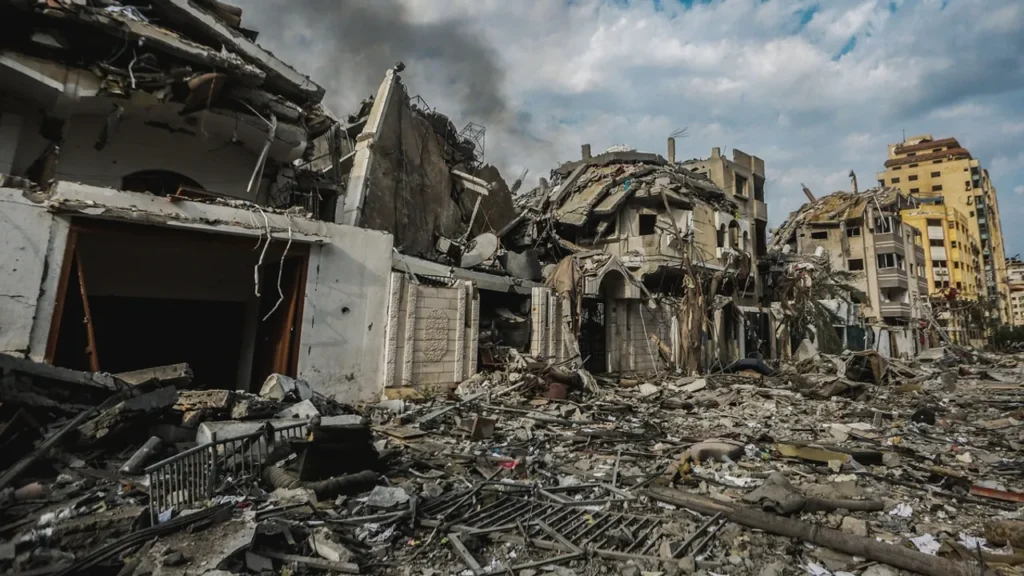The Israeli military has ramped up efforts to provide humanitarian aid to northern Gaza as the crisis there reaches critical levels, with mounting international pressure for immediate relief for civilians caught in the crossfire. On Tuesday, Israel reported the delivery of hundreds of food packets and thousands of liters of water to areas heavily impacted by the ongoing military operation. These actions come as Israel faces a looming deadline from the United States, which has stipulated that more aid must reach the Palestinian enclave or risk cuts to American military assistance.
Despite these steps, Gaza remains gripped by an escalating humanitarian crisis. Palestinian medical personnel reported at least 24 deaths in overnight Israeli strikes, including 10 fatalities in a single house in Beit Hanoun and additional casualties in nearby Beit Lahiya. The intense conflict has claimed the lives of four Israeli soldiers, adding to the toll on both sides as the siege of northern Gaza surpasses its first month. According to the Israeli military, the operation aims to eliminate Hamas forces that have regrouped around Jabalia. While Israel asserts that hundreds of fighters have been killed or captured, the humanitarian toll on civilians has drawn significant global attention, with aid organizations describing the situation as “dire.”
With resources severely restricted, hospitals in Gaza are struggling to provide essential care. “We are witnessing alarming cases of malnutrition among both children and adults. We are struggling to provide even one meal a day for our hospital workers amidst severe food and medical supply shortages,” stated Hussam Abu Safiya, director of Kamal Adwan Hospital in northern Gaza. He further emphasized the dire impact of the lack of resources, saying, “We are losing lives every day due to the lack of specialized care and resources.”
The humanitarian conditions have prompted warnings from global food security experts, who have raised the alarm about the potential onset of famine in northern Gaza. Israel has refuted these claims, but aid agencies report that the measures undertaken so far are inadequate for the scale of need. Israel’s military operation, which includes the evacuation of tens of thousands of civilians from northern Gaza, has been met with accusations of forced displacement and concerns that the area could ultimately become a buffer zone or a site for the possible return of Jewish settlers, echoing calls from certain hardliners within Israel’s government.
Meanwhile, Israel has worked to meet U.S. demands by increasing aid deliveries, recently opening a fifth crossing into Gaza to facilitate the flow of food, water, medical supplies, and shelter materials. According to the Israeli military, over 700 trucks carrying aid have entered northern Gaza via the Erez crossing since October, along with the evacuation of 244 patients needing urgent care. However, many international groups stress that these efforts fall short as the situation in Gaza continues to deteriorate.
As the U.S. prepares to evaluate Israel’s compliance with its aid demands, the future of military assistance hangs in the balance. Outgoing President Joe Biden has largely supported Israel following the October Hamas-led attack that killed over 1,200 Israelis, but the intensifying civilian toll in Gaza has led to increasingly strained relations with Prime Minister Benjamin Netanyahu’s administration. With former President Donald Trump poised for a potential return to power, hardliners in Israel have voiced anticipation of stronger U.S. backing for their policies. This week, Finance Minister Bezalel Smotrich expressed hopes for annexing parts of the West Bank, with possible support from a future Trump administration, though no formal decision has been made.
In the midst of these unfolding events, Qatar, which has played a key role in negotiating ceasefires and hostage exchanges, announced that it will pause its mediation efforts. Citing a lack of “willingness and seriousness” from both sides, Qatar’s stance reflects the growing international frustration over the protracted conflict and its devastating impact on civilians.
The situation in Gaza remains on a knife-edge as Israel works to satisfy U.S. conditions for aid while maintaining its military objectives. With a potential change in U.S. leadership and a rapidly worsening humanitarian situation, the region faces an uncertain and potentially volatile future.



